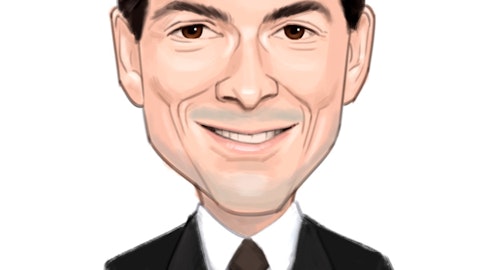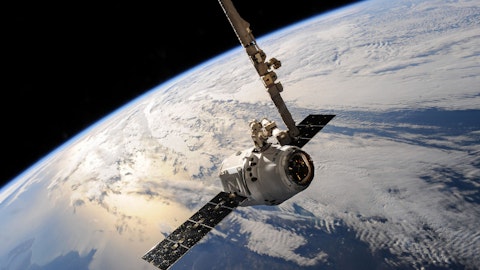Mariana Pérez Mora: Great. Thank you very much.
Operator: We’ll take our next question from Edison Yu with Deutsche Bank.
Edison Yu: Wanted to ask on launch first. I know you used to targeting the first flight right before latest year. Assuming that goes well, how should we think about the phasing of launches after that? Do you have a plan to kind of start completing the manifest? Do you need to do a couple more successful tests? What’s that cadence sort of look like?
Chris Kemp: Yeah, thanks Edison. I appreciate it. I think that the way we’re thinking about the first flight is we would certainly love to be the first company to ever fly a rocket and have it be flawless the first time. And we’re also we’ve been humbled by the challenges that both Astra and organizations across the world have faced over the last year with new rocket programs. So, we are planning on building an Alpha and a Bravo test flight and learning as much as we can from those and then as we have a number of customers that we have launch contracts with, we obviously want to get back to servicing those launch services contracts as soon as we can. And, we think that demonstrating reliability will unlock a lot of potential given the new 600 kilogram capacity and the price point where we’ll be offering that service.
But again, I want to underscore the investments we’ve made are to ensure that we can scale production and we can ensure the reliability of this new Rocket 4 and Launch System 2 has received the right amount of attention and the right amount of investment given the cost of capital, both now and in the future. And we’ve been — we’ve been as thoughtful as we can be as a management team in striking that balance and giving the team enough time to build the best possible product and achieve success as quickly as possible.
Edison Yu: Understood. On the space engine side, on the propulsion side, very decently sized backlog, order book. I’m wondering what’s the latest on getting into some of these mega constellations and I’m mainly alluding to OneWeb Gen 2, obviously you have that relationship with them already. Any updates there? Any timing that we should be on the lookout for, if you can get some pretty major content on that constellation?
Martin Attiq: Hey, Edison, this is Martin. As you know, we’ve worked with a number of customers and constellations and we have signed up a number of them, and we continue to work with our existing customers who have larger programs that they have in mind to execute against those programs and next week contracts against those programs. We don’t have anything to announce today. And believe me, like when we do something get announced, we’ll let you know. But we are very excited by, as Chris and Axel alluded to, not only the strength of the backlog, but also the strength of the pipeline that’s behind it, and the customer discussions we’re having that we’re trying to convert to contracts is also very exciting, but we don’t have anything to announce in any of the mega constellations that are out there.
Edison Yu: And in terms of the capacity that you’re planning for, do you need a mega constellation to run full capacity, or do you think you could fill that up with I guess, yeah, without hitting a bigger — a bigger one?
Martin Attiq: Certainly a mega constellation would be great, and I think we’d be delighted to support, those programs. We don’t need those programs in order to support the capacity that we’re trying to build out in Sunnyvale, given the pipeline that we have. Maybe Edison, if you’re asking about — go ahead. If you’re asking about launch services, I think that we see the demand and the number of launches continue to increase. And also the companies that are out trying to build new capabilities like Astra has recognized, this is a challenging thing to get going. And we believe that 600 kilograms is a sweet spot because it’ll allow us, as we said earlier, to address at least 80% of the overall addressable market for satellites.





